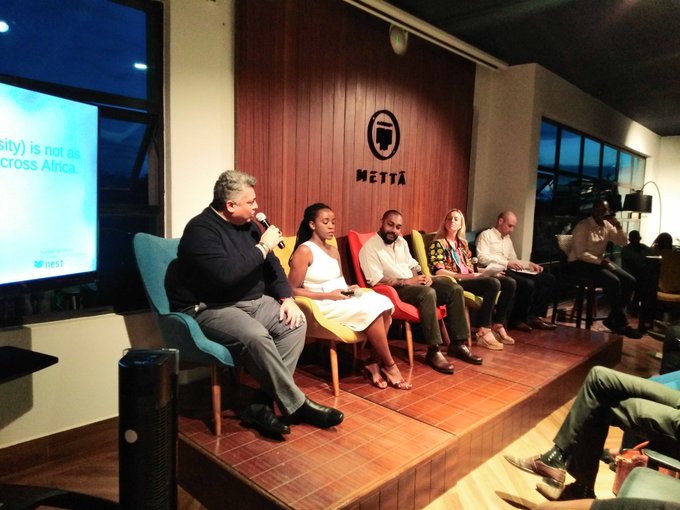While the the Food and Beverages Industry in Africa has recorded a growth, owing to among many other factors, an increasing population, there are barriers to its trajectory.
This was the message by the Managing Director of Sagaci Research, Mr Julien Garcia, during the F and B event held hours ago at Riverside, in Nairobi.
“Large food chains are not coming to Africa because there are not enough supply chains to develop to open an outlet,” he says.
According to the 2019 African Fast Food Market Report, the growth of fast food outlets in the continent can continue with an upgrade of not just infrastructure but supply and logistic chains as well.
Globally, the Food and Beverage sector is estimated to be worth $7 trillion as of this year by the China Food and Beverages Report.
Research from Euromonitor International in 2014 further states that African countries such as South Africa and Morocco have become an attractive place for investors of fast food outlets such as Kentucky Fried Chicken, recording a growth of at least three percent for five years, between 2014 and 2009.
In Africa, KFC, from the United States of America, has the largest reach with 771 outlets.
Mr Garcia says that a lot of these chains today are fast foods, such as McDonalds and Java House.
He says that the Food and Beverage sector is key to the development of the middle class and that big chains have also moved from malls and city centres to capitals and two-tier cities.
During the event, there were Kenyan panelists who came out to express their views about what it is that they consider for the Kenyan market.
The Founder of Kaluhis Kitchen, Kaluhi Adagala, who is also a blogger, says that the cost of eating out versus eating in, is increasingly becoming more popular as people are curious about the experience of what it entails to eat out, as well as the service that is being offered, so long as the price of the food is what they can afford.
The Chief Executive Officer (CEO) of Eat Out Kenya, Mr Mikul Shah, says that Food and Beverage chains are likely to fail because there is a lack of consistency in what they offer and other factors such as the location, even for people who have disposable incomes to purchase food, the latter being the target market.
Mr Jay Shaghavi, the CEO of Good Earth Group, says that the company’s renowned dinner brand, Nyama Mama, has gone beyond the country to other parts of the world such as the region and as well as offering Chinese foods.
Also in attendance was the CEO of Savannah Brands, Ms Alexanddre Chappatee, who says that that there will be a huge African consumer food and beverage market in the next five years and that she hopes to see more brands come to Kenya to penetrate the markets, though there is a concern about the rising cases of health associated with food and beverages as well as the lack of good spaces.
Data from the World Health Organisation (WHO) states that due to the rise of fast food outlets in a variety of African countries, such as Egypt, where outlets such as McDonald’s and Hardee’s have set up shop, obesity has become a problem.
In 2017, the Malabo Montpellier Panel released a study in which it expressed its discontent that despite there being 233 million people in Africa, there are 10 million of this populace that is overweight or obese.
“ I am not a Kenyan, which means that I lack original foods in the country but that I have to resort to curation. I think that technology is going to play a huge role moving forward. We collect data, so long as it consistent and based on our own marketing experience,” says Ms Chappattee during the event.
The CEO of Yum Deliveries, Mr Jacob Hanson, says that it is important for those in the food delivery business to use technology to innovate and create their own space as food delivery is the current model and every company wants to get a market share in that field.
“We are giving restaurants access to their data so as to help promote their platform, a service which is helping at some level,” he says.

